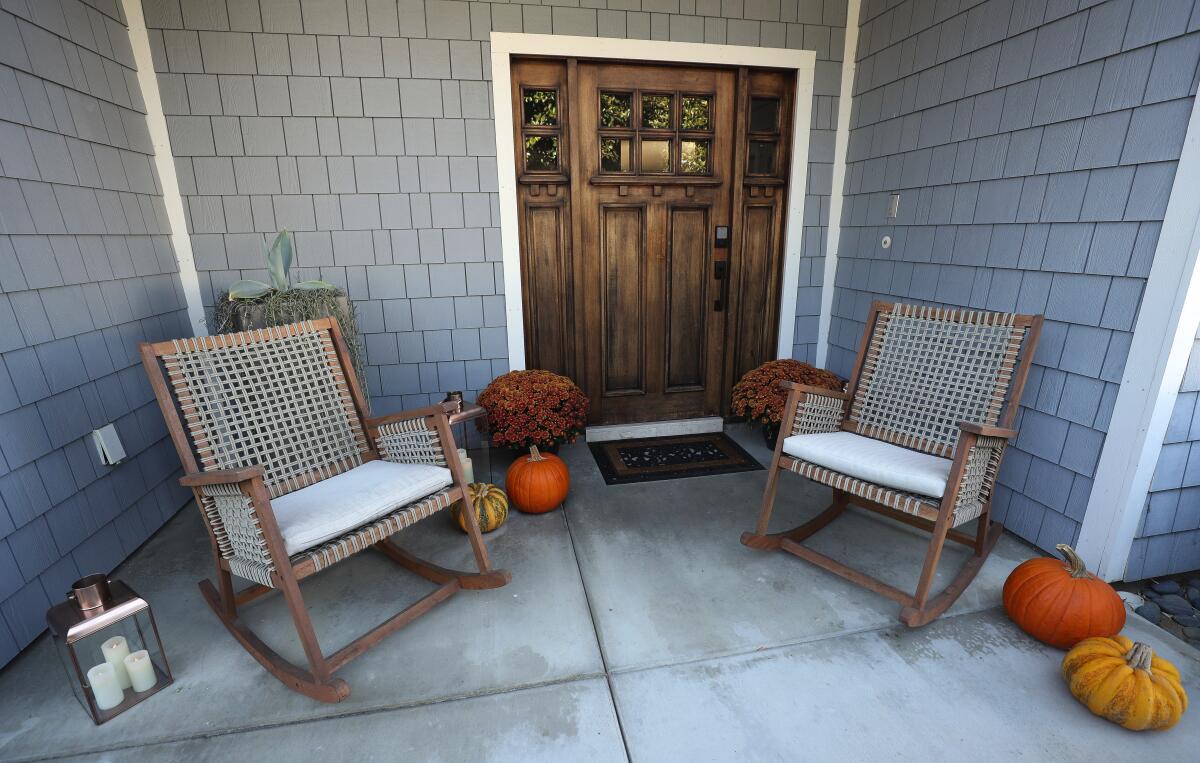The best ways to rent your house to tourists

If you want to rent your house to tourists, you’ve probably already heard of Airbnb. However, there are dozens of other sites that could also help you advertise your home for rent. And, because of the way sites charge to advertise rentals, some of these alternatives are more cost-effective for both you and your renters.
Of course, before listing your home on any of these sites, be sure to look up your local ordinances about short-term rentals to find out whether it’s allowed and what regulations you need to follow.
Here’s everything else you need to know.
Different ways to advertise
There are two different ways that websites charge you for marketing your house for rent — commission or flat fee.
The commission model has a visceral appeal. You have no upfront costs. The site gets paid only when you do. And, if you only occasionally rent your house to tourists, it’s usually the most cost-effective way to go.
But, if you rent your house regularly — or you charge a high nightly rate — avoiding commissions could save you a lot of money. That’s because even modest commissions add up over time. They also can make your rental more costly for your customers. And that can reduce the number of rentals you’re able to book, or force you to reduce your nightly rate to make your home more affordable.
Best option
Let’s say that you list your beach house for $200 a night and it’s rented an average of 20 days a month, six months a year. That gives you $24,000 in annual rental income. If you pay Airbnb’s 3% host fee, that costs you $720. But, Airbnb also charges your renters a “site fee” of 14% to 16% of the total rent. That adds to at least $3,360 — roughly $28 in fees per night.
If you are able to get the same number of rentals by paying an upfront advertising fee of $200, both you and your renters save a small fortune. In theory, you could even charge a higher nightly rate and still be competitive with a similar Airbnb rental since your guest wouldn’t be paying additional site fees.
Finding renters
That said, the best place to list your home is all about the site or sites that pull in renters. Here’s a look at your choices and what makes them good and bad.
Airbnb
With close to 100 million web visitors a month, Airbnb is the undisputed leader in helping rent your house to tourists. And, the site’s host fees are among the lowest in the industry, at 3% of the booking amount.
However, the site has two main shortcomings. One is that it charges much larger fees to guests — usually 14% to 16% of the booking amount. Those enormous fees can cause potential renters to bail out from sticker shock when they see the details.
Additionally, the site favors hosts who allow so-called instant bookings. These bookings allow anyone who meets set criteria — like having positive reviews or a verified ID — to book without communicating with you. This may be inappropriate if you are renting out just a portion of your house or if you’re concerned that the house could be used as a party venue. You can choose not to accept instant bookings. But some hosts maintain their listings get buried on the site if they don’t.
SabbaticalHomes
SabbaticalHomes charges flat listing fees, rather than commissions. And these fees are among the cheapest in the industry, ranging from $60 to $85 annually. There’s also a $50 “match” fee paid by both homeowners and renters. Still, compared with the commissions charged by other sites, these fees are a bargain — particularly for SabbaticalHome’s target market.
The site is designed for educators who frequently take months-long trips to refresh their knowledge in another city. Thus, the site focuses on rentals of several weeks or months, rather than overnights. Although teachers and students get preferential listing rates on the site, SabbaticalHomes is open to anyone offering — or looking for — home rentals. Users rave about the site and say they have no trouble finding renters. However, the site does not collect payments for you or provide any vetting of the renters. It gives you tips on how to do that yourself.
HomeEscape
Like SabbaticalHomes, HomeEscape charges an upfront fee for listing— $199 annually. Neither homeowners nor renters pay additional commission-based fees. This makes the site a highly affordable place to list your home for rent or to find a rental. The catch? HomeEscape draws even less web traffic — i.e. potential customers — than SabbaticalHomes.
On the bright side, the site promises that you’ll get at least six rental inquiries in your first year, or it will waive your second-year listing fees. If you’re listing a home for rent, this site is worth a try.
VRBO and Flipkey
VRBO and Flipkey are two of the biggest players in the tourist rental market. But it is hard to recommend them. That’s because they charge as much or more than Airbnb and aren’t as well-liked by their customers. Notably, VRBO is more than a decade older than Airbnb and used to be the predominant peer-to-peer rental site. In Airbnb’s early days, VRBO differentiated itself by charging flat fees to advertise rentals, rather than charging commissions. That made it the cheaper choice for active rentals. However, it has since changed to a commission structure, and it now charges higher commissions than Airbnb despite drawing about half as many potential customers.
Flipkey mimics Airbnb’s fee structure. But homeowners complain that the site’s cancellation policy is so strict that they frequently end up paying big penalties for cancellations of far-distant rentals.
Location-specific rental sites
If what makes your vacation rental special is its location, you may also want to list your home with a location-specific site. There are sites that specifically list beach houses or mountain rentals, for example. And a whole host of sites do nothing but list homes for rent in Cape Cod or other popular tourist locations.
A few worth mentioning here are We Need a Vacation and Cape Cod Vacation Rentals, both of which charge an annual advertising fee rather than commissions to find you renters in the Cape Cod area. Beach House charges a flat annual advertising fee to find renters for your oceanfront real estate. Notably, a dozen sites operated by a company called Red Awning advertise in narrow niches — ski rentals, lake houses, etc. — but charge even stiffer commissions than VRBO.
Mitigate risk
One final caution. Before you list your house for rent, make sure you understand how your homeowners insurance policy works and what it covers.
Generally, a personal homeowners insurance policy will exclude coverage for paying guests. That leaves you at risk if someone hurts themselves or damages your property while renting your home.
Some sites, including Airbnb, automatically provide liability coverage to protect your guests while renting. But these policies do not protect your possessions. Before you rent your house to tourists, talk to your insurance agent and consider getting either a commercial policy or a commercial rider for your homeowners coverage.
And, it’s always smart to ask renters for a security deposit to cover accidental breakage.
Kristof is the editor of SideHusl.com, an independent website that reviews money-making opportunities in the gig economy.
More to Read
Inside the business of entertainment
The Wide Shot brings you news, analysis and insights on everything from streaming wars to production — and what it all means for the future.
You may occasionally receive promotional content from the Los Angeles Times.










